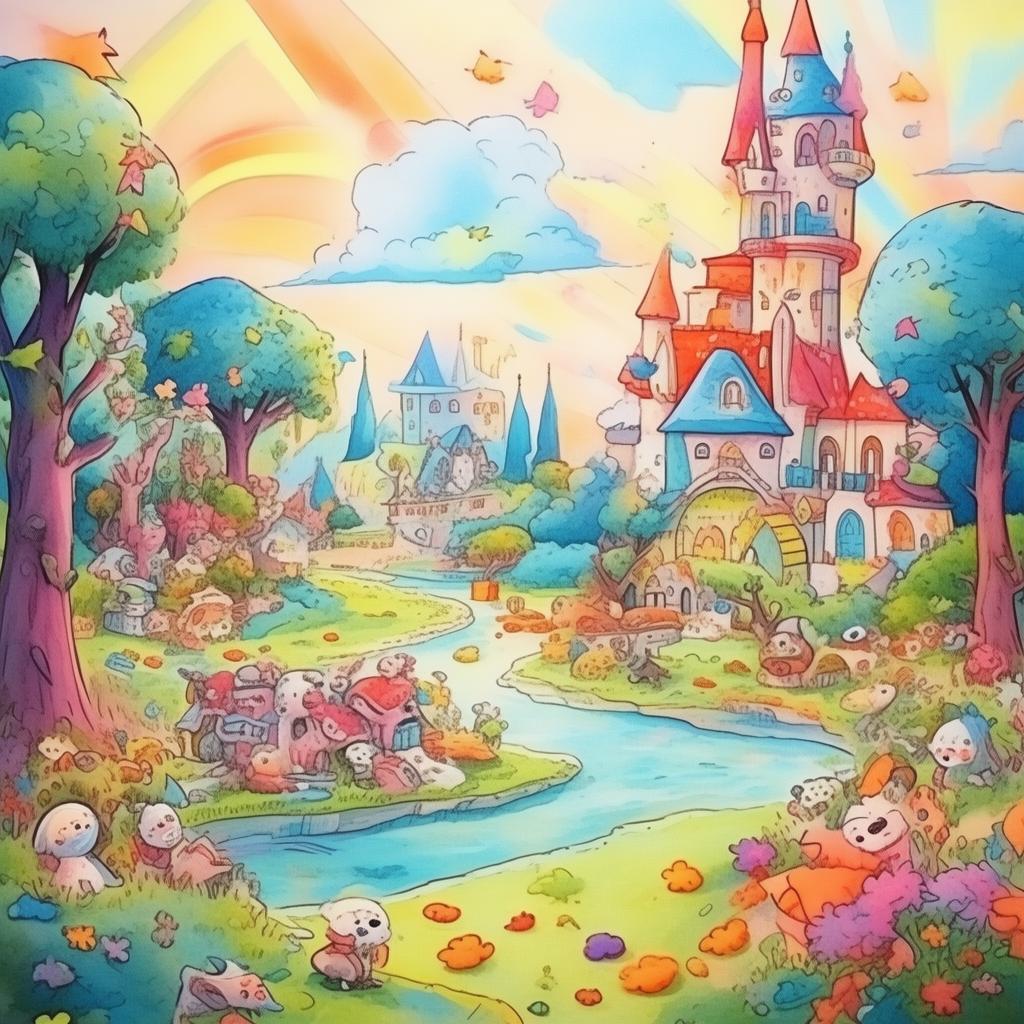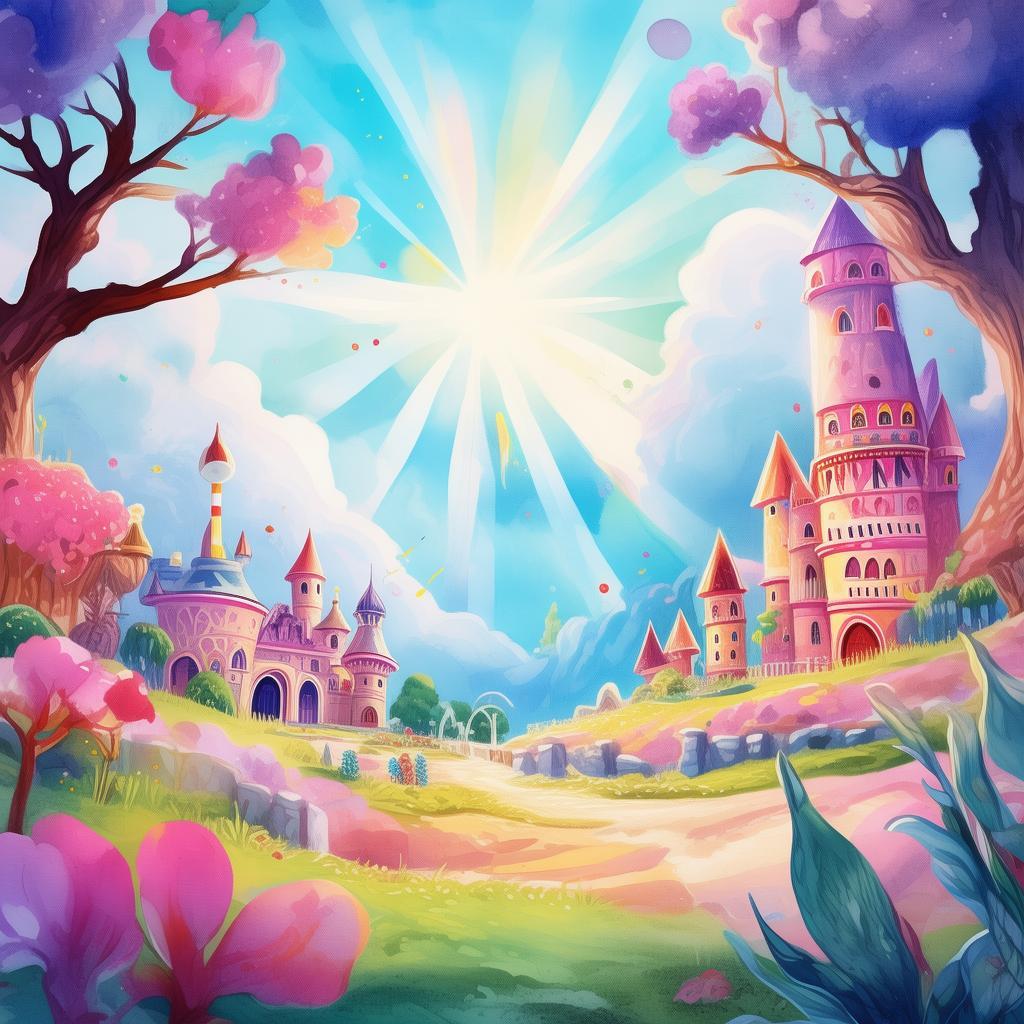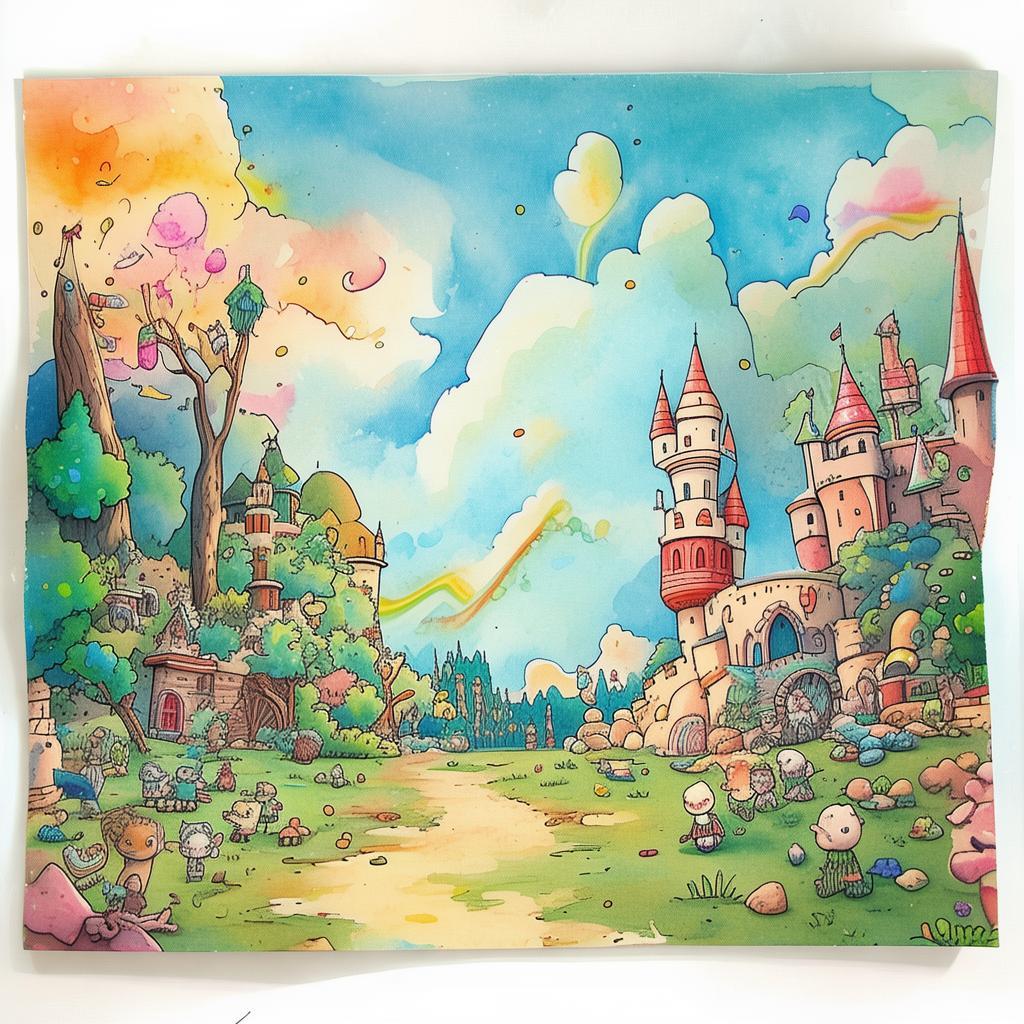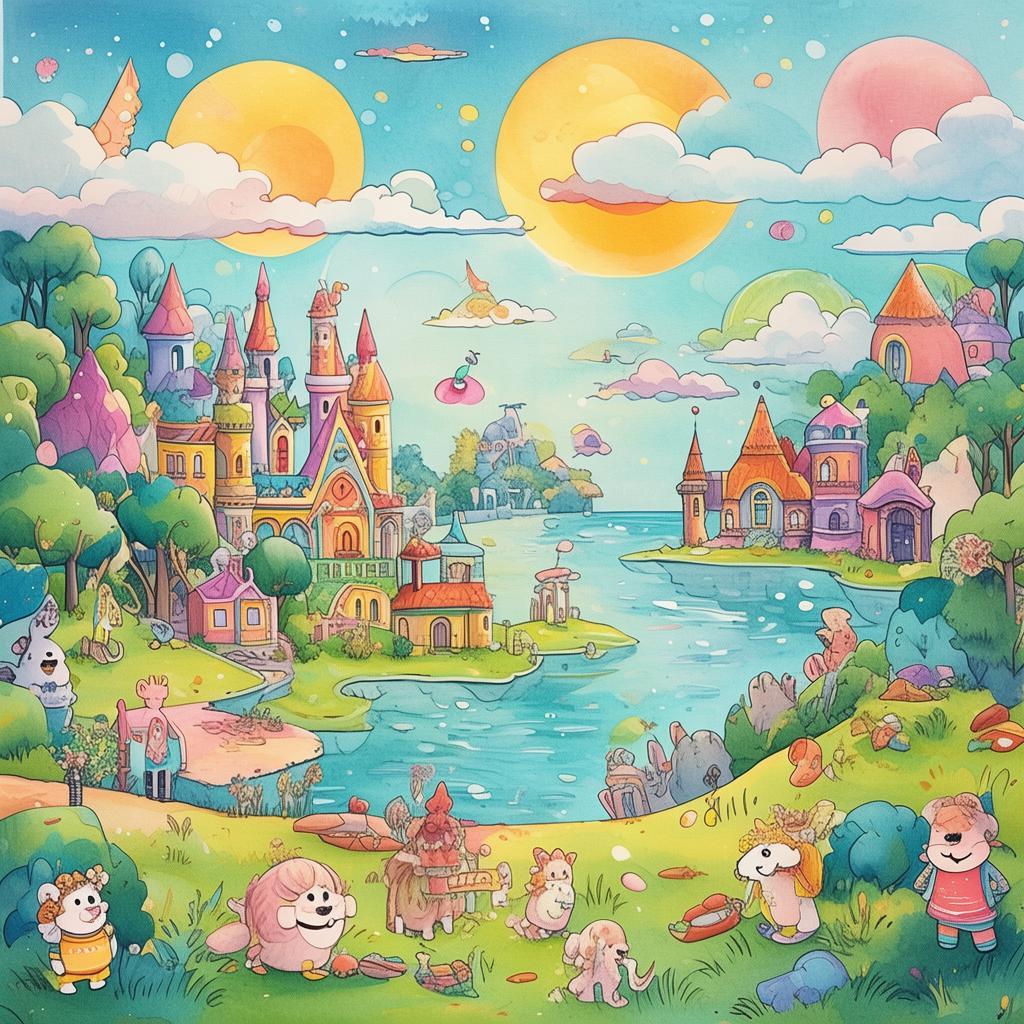Whispers of the Chessboard: A Child's Quest for Enlightenment
Once upon a time in a quaint village nestled between rolling hills and whispering forests, there lived a child named Xiao. Xiao was not just any child; he was a child philosopher, deeply inquisitive about the world and its mysteries. One day, Xiao stumbled upon an old, dusty chessboard in his grandmother's attic, a relic from a bygone era.
The chessboard fascinated Xiao. Unlike the simple games he was used to, this game seemed to tell a story, each piece a character with its own purpose. Xiao's grandmother, intrigued by her grandson's newfound fascination, decided to teach him the game. As they sat together, Xiao's eyes sparkled with curiosity and determination.
"Grandma," Xiao asked, his voice tinged with wonder, "why is chess so important?"
His grandmother smiled, her eyes soft with wisdom. "Chess is more than just a game of strategy, Xiao. It's a reflection of life itself. Each move you make is a decision, and every decision has consequences."
Xiao's young mind raced with thoughts. He began to play, and the game unfolded like a story. He felt the thrill of victory and the sting of defeat. With each game, he learned more about strategy, about how to anticipate his opponent's moves and plan ahead.
One day, Xiao's opponent, a boy named Ming, who was as skilled as he was, challenged Xiao to a game. Ming was known throughout the village for his clever moves and sharp wit. The game began, and Xiao's heart raced with anticipation.
As the game progressed, Xiao noticed that Ming's strategy was not just about winning; it was about outsmarting his opponent without causing harm. It was a game of honor and respect, a game that mirrored the code of conduct Xiao's grandmother had always instilled in him.
Xiao's moves became more thoughtful, each one a reflection of his conscience. He realized that in chess, as in life, one could not simply think about the immediate outcome but had to consider the long-term implications of each decision.
The game reached a critical moment. Ming had a chance to checkmate Xiao, but instead, he offered a draw. "I see you're not just playing for victory," Ming said, "but for enlightenment as well."
Xiao nodded, his eyes filled with understanding. "You're right, Ming. I want to learn not just to win, but to play well."
From that day on, Xiao's games took on a new meaning. He began to see the chessboard as a map of life, where each piece represented an aspect of himself. The pawns became his daily choices, the knights his courage, the bishops his wisdom, the rooks his strength, the queen his influence, and the king his leadership.
As Xiao grew older, his games became legendary. They were not just contests of skill but forums for discussing life's deepest questions. People from all over the village would gather to watch Xiao play, to learn from his insights and his strategies.
One day, a wise elder approached Xiao after a particularly profound game. "You have mastered not just the game of chess," he said, "but the game of life."
Xiao smiled, his heart swelling with pride and gratitude. "Thank you, Elder. I have learned that every move I make, every decision I take, is a step toward enlightenment."
And so, Xiao continued to play, not just for the thrill of victory, but for the wisdom he gained from each game. The chessboard became his teacher, guiding him through the complexities of life's decisions and helping him understand the infinite possibilities that lay within him.
In the end, Xiao's story was one of growth and enlightenment. He realized that the game of chess, like the game of life, was about making thoughtful, conscience-driven choices that led to a deeper understanding of oneself and the world around them.
Xiao had become a local hero, not just for his chess prowess but for the wisdom he imparted through his games. His grandmother often told him that the game was a mirror of life, reflecting the choices one made and the consequences that followed.
One evening, as the sun dipped below the horizon, casting a golden glow over the village, Xiao found himself sitting alone on the grassy hill outside his grandmother's house, contemplating the day's events. He looked at the stars, each one a spark of possibility, and felt a profound sense of wonder.
The next morning, Xiao received a mysterious letter. It was a challenge from a distant master, someone who had heard of his remarkable ability to blend chess strategy with life's wisdom. The master invited Xiao to a grand tournament, to test his skills against the greatest players in the land.
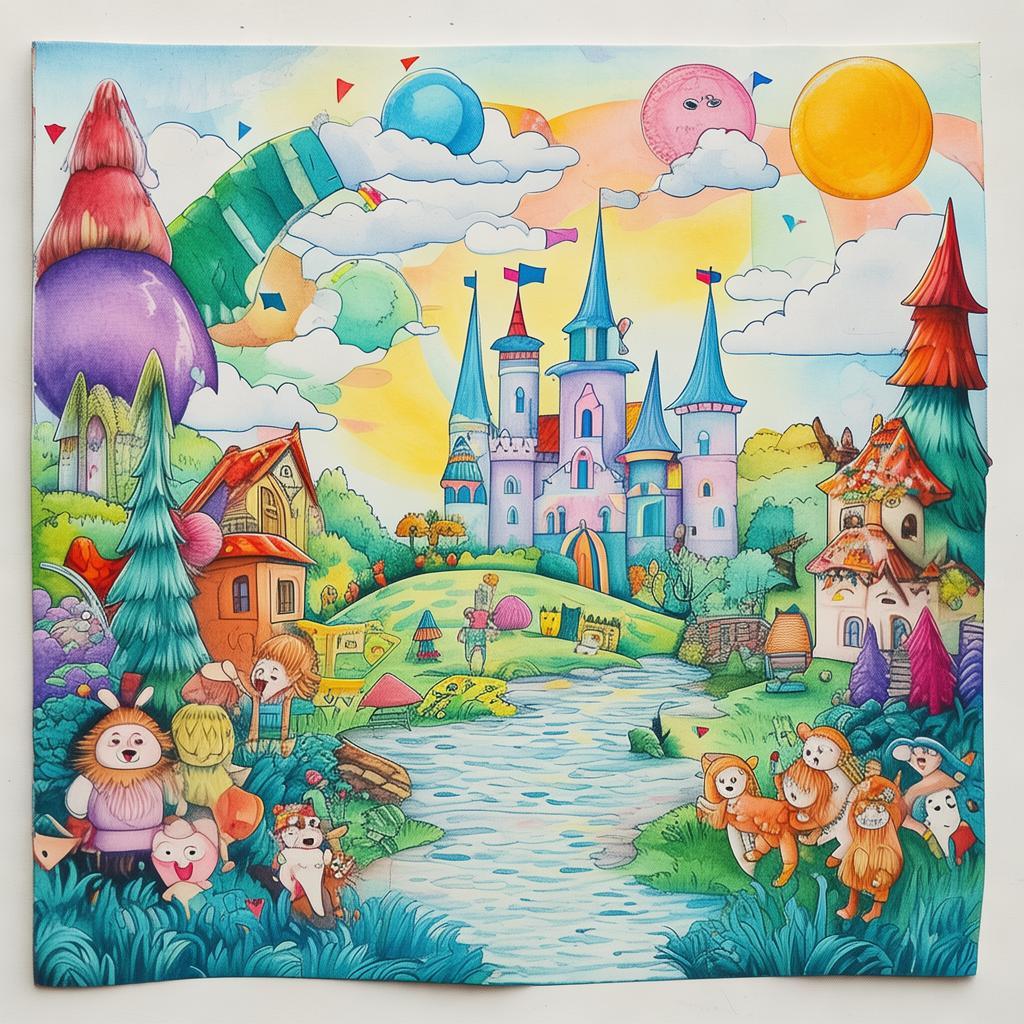
Xiao knew this was an opportunity of a lifetime. He spent days preparing, studying the classics, and reflecting on his own experiences. He realized that this tournament was not just about winning; it was about proving to himself and the world that chess was indeed a game of enlightenment.
The day of the tournament arrived. Xiao stood on the stage, surrounded by a sea of faces, each one a potential opponent. He took a deep breath, centering himself, and felt the familiar warmth of the chessboard beneath his fingers.
The first round was a breeze. Xiao played with a calmness that surprised even himself. He felt the pieces move through his mind like rivers of thought, guiding him to the perfect move. The spectators watched in awe, their whispers filling the air with anticipation.
As the rounds progressed, Xiao's opponents grew more formidable, each one a master of strategy and tactics. Xiao's mind raced with possibilities, each decision a reflection of his conscience. He thought about his grandmother's words, about the importance of making decisions that would not just win the game, but also honor the spirit of chess.
In the final round, Xiao faced his greatest challenge yet. His opponent was a legendary player, known for his cunning and ruthless tactics. The room fell silent as the two competitors faced off, their minds locked in a battle of wits.
The game reached a critical point. Xiao's opponent had a chance to checkmate him, but instead, he paused, his eyes searching Xiao's face for a sign of weakness. Xiao saw this as an opportunity. He made a risky move, one that could have cost him the game, but it was a move that spoke to the essence of chess: not just winning, but playing well.
The opponent hesitated, then smiled, acknowledging Xiao's move. The game ended in a draw, not with a win or a loss, but with a mutual respect that echoed through the hall.
As Xiao walked off the stage, the crowd erupted in applause. The master approached him, his eyes filled with admiration. "You have not only won the tournament," he said, "but you have won the hearts of everyone here."
Xiao smiled, feeling a sense of fulfillment that words could not express. He realized that the true victory was not in the outcome of the game, but in the journey itself, in the enlightenment he had gained along the way.
In the days that followed, Xiao returned to his village, his heart brimming with gratitude. He continued to play chess, not just for the thrill of the game, but for the lessons it taught him about life.
The village had changed, too. People began to see Xiao not just as a chess master, but as a mentor, someone who could guide them through life's complexities with wisdom and grace.
And so, Xiao's story continued, not just as a child's quest for enlightenment, but as a testament to the power of chess to teach life's most important lessons.
✨ Original Statement ✨
All articles published on this website (including but not limited to text, images, videos, and other content) are original or authorized for reposting and are protected by relevant laws. Without the explicit written permission of this website, no individual or organization may copy, modify, repost, or use the content for commercial purposes.
If you need to quote or cooperate, please contact this site for authorization. We reserve the right to pursue legal responsibility for any unauthorized use.
Hereby declared.

